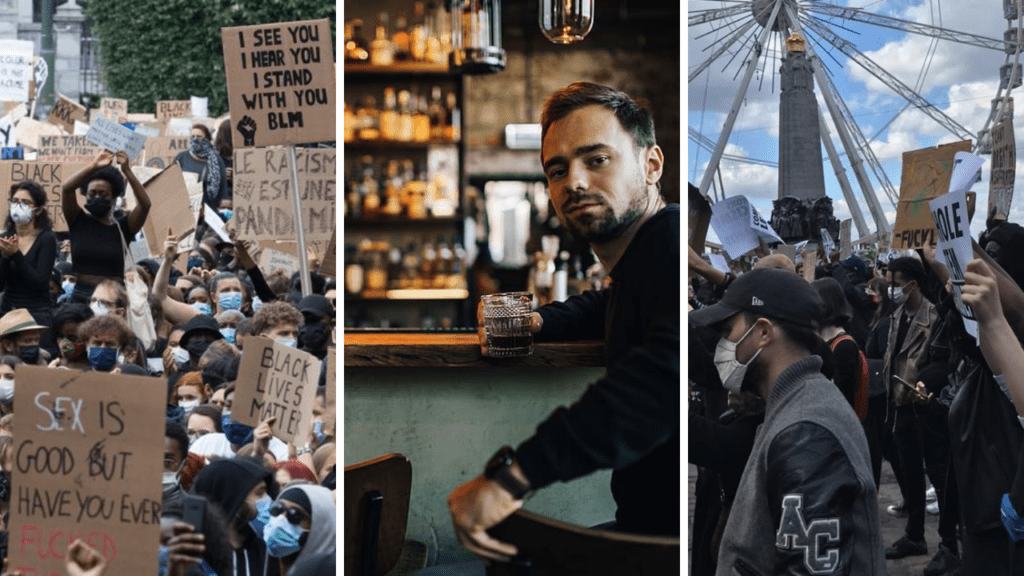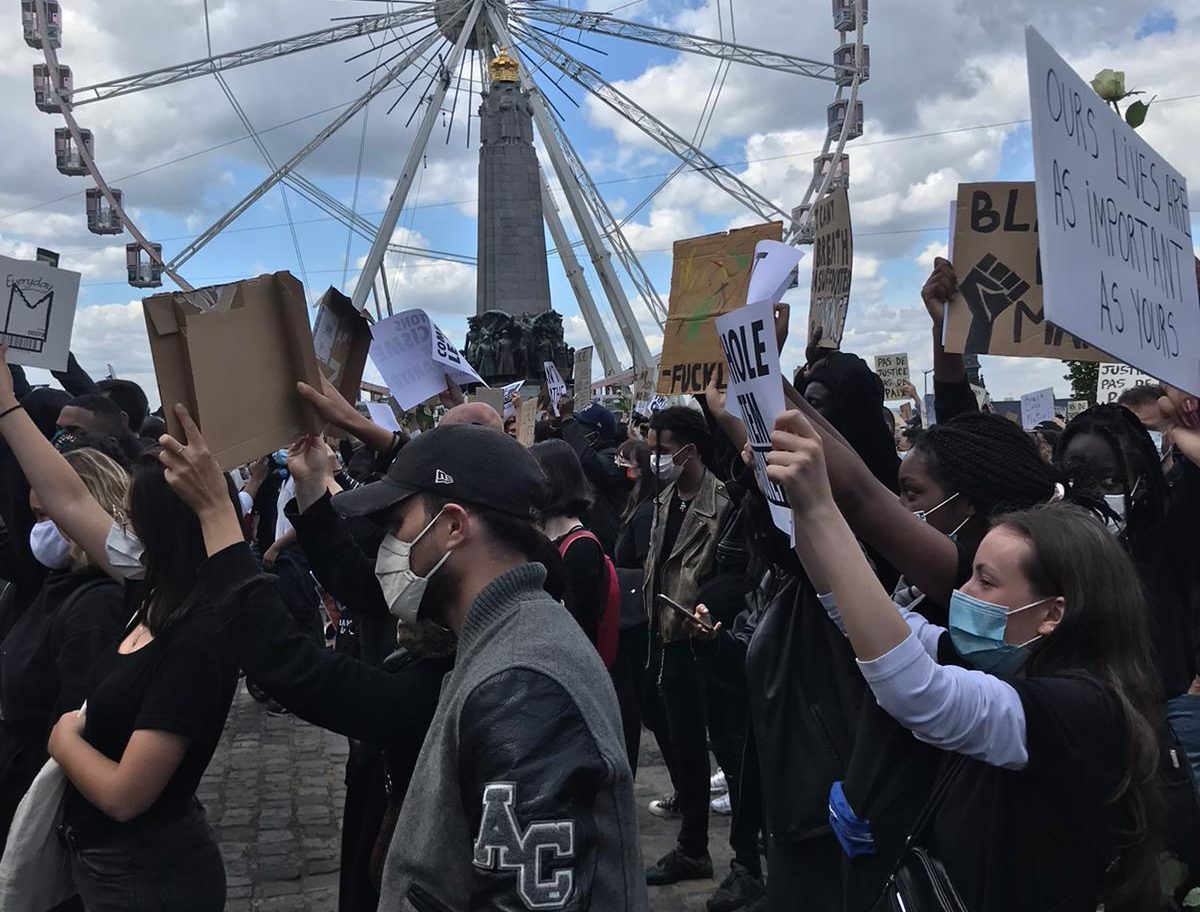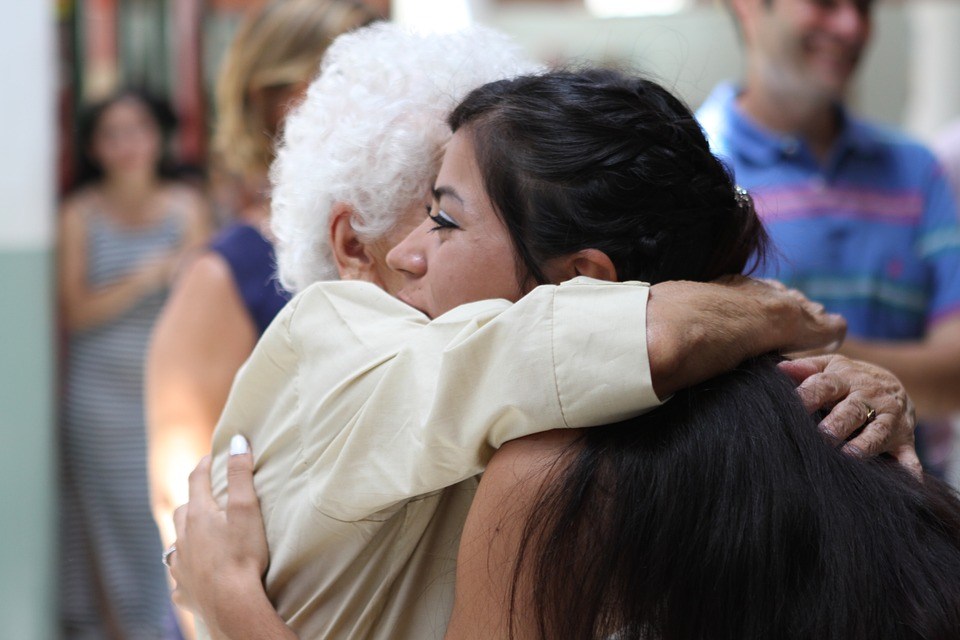After 10,000 people turned out in Brussels yesterday to protest for Black Lives Matter, Belgian state virologists have raised concerns over the impact that the massive turnout will have on the evolution of the coronavirus pandemic.
Addressing those who attended, virologist Emmanuel André asked people to "strictly follow hygienic measures for 15 days and that you keep fighting for the rest of your life.”
The protest - called "dangerous," by one expert - also drew criticism from state virologist Marc Van Ranst, who said such a gathering “would have been deadly two months ago.”
Ultimately, however, experts agree that we will see the impact on Belgium's figures in around 2 weeks times. More on this story below.
Speaking of figures, today we recap the latest figures as the general trend declines, recap what happened during and after the BLM protests, and outline the rules if you want to go to a bar tonight.
With so much information, and so little time to catch up before it potentially changes again, here are some of the top stories from around the country to get you up to speed.
Belgium in Brief is a free daily roundup of the top stories to get you through your lunch break conversations. To receive it straight to your inbox every day, sign up below:
1. ‘Not wise’: virologists react to massive BLM protest in Brussels
As mentioned above, Belgian state virologists have raised concerns over the impact that the massive turnout to a Black Lives Matter protest in Brussels will have on the evolution of the coronavirus pandemic.
As they expressed support for the reasons behind the protest, virologists urged attendants to remain cautious over the coming days, with many saying they feared the protest risked giving the novel virus more fuel. Read the full story here.
2. In Photos: 10,000 Black Lives Matter protesters in Brussels
About 10,000 persons of all ages assembled on Sunday afternoon at the Place Poelaert in Brussels to protest against police brutality against people of colour and, generally, racism, according to an early tally by the capital police.
The protest was part of a wave of demonstrations worldwide sparked by the killing on 25 May in Minneapolis, USA, of an African-American man, George Floyd, at the hands of a white policeman who knelt on his neck for eight minutes and forty-six seconds, strangling him.
As with marches held across the states, attendees took to social media to show their support, with the hashtags #BLMBelgium, #blacklivesmatterbelgium and #Congo trending on Twitter well into Monday. Were you there? Show us your photos.
3. Over 200 arrests after riots and looting follow BLM protest in Brussels
A peaceful Black Lives Matter (BLM) protest in Brussels gave way to looting and chaos on Sunday, leading to widespread condemnation from authorities and over 200 arrests.
Shops in the high-end Louise area were broken into and trashed as groups of rioters broke off from the mass of some 10,000 demonstrators as they left the gathering spot in Place Poelaert.
Looters also moved into the nearby Matongé district, where they clashed with police as they set fire to garbages and looted fast-fashion chains and other retailers lining the Chaussé d’Ixelles. Read more.
4. Hugs are safer than handshakes, says Marc Van Ranst
People should give each other a hug rather than shake hands now that the coronavirus measures are relaxing further, according to Belgian virologist Marc Van Ranst.
As people are allowed to see ten others per week from Monday, keeping the necessary 1.5 metres will not always be easy. Some will not be able to hold back from giving each other a hug, but that’s okay, Van Ranst told Het Nieuwsblad.
Belgian Prime Minister Sophie Wilmès, during the press conference in which she announced the start of Phase 3 of the country’s exit plan on Wednesday, said that people should use their common sense, but that it was understandable that keeping your distance was not always possible. Read more.
5. Coronavirus: 122 new infections, 23 hospital admissions in Belgium
122 additional people have tested positive for the new coronavirus (Covid-19) in Belgium in the last 24 hours, according to figures by the Federal Public Health Service on Monday.
This brings the total number of confirmed cases in Belgium, since the beginning of the pandemic, to 59,348. The total reflects all people in Belgium who have been infected, and includes confirmed active cases as well as patients who have since recovered, or died from the consequences of the virus. Read more.
6. Free Rail Pass for all: SNCB was not consulted
The national rail authority SNCB was not consulted about a plan by the government to award a free ten-trip rail pass to every resident in Belgium as part of the measures announced yesterday.
According to SNCB CEO Sophie Dutordoir, the news of the pass, which was agreed by the so-called Superkern made up of government ministers and representatives of the ten parties supporting the government, came as a surprise to her as much as to the 11 million people living in Belgium.
“The way in which a decision was taken yesterday without any consultation raises serious questions,” Dutordoir said on Twitter. “The SNCB is therefore requesting immediate consultation and all necessary assistance to avoid any risk of overcrowding of trains and platforms.” Read more.
7. Cheat-sheet: The new rules for customers returning to bars
The latest announcements from the Belgian National Security Council have confirmed that the Belgian HoReCa (hotel, restaurant and catering) sector will once again be able to welcome customers from Monday 8 June.
A newly published “guide for a safe restart of the HoReCa” published by the FPS Economy, has set out the rules that need to be followed for customers as the places begin to reopen.
So What Are The New Guidelines For Customers?
Jules Johnston
The Brussels Times



